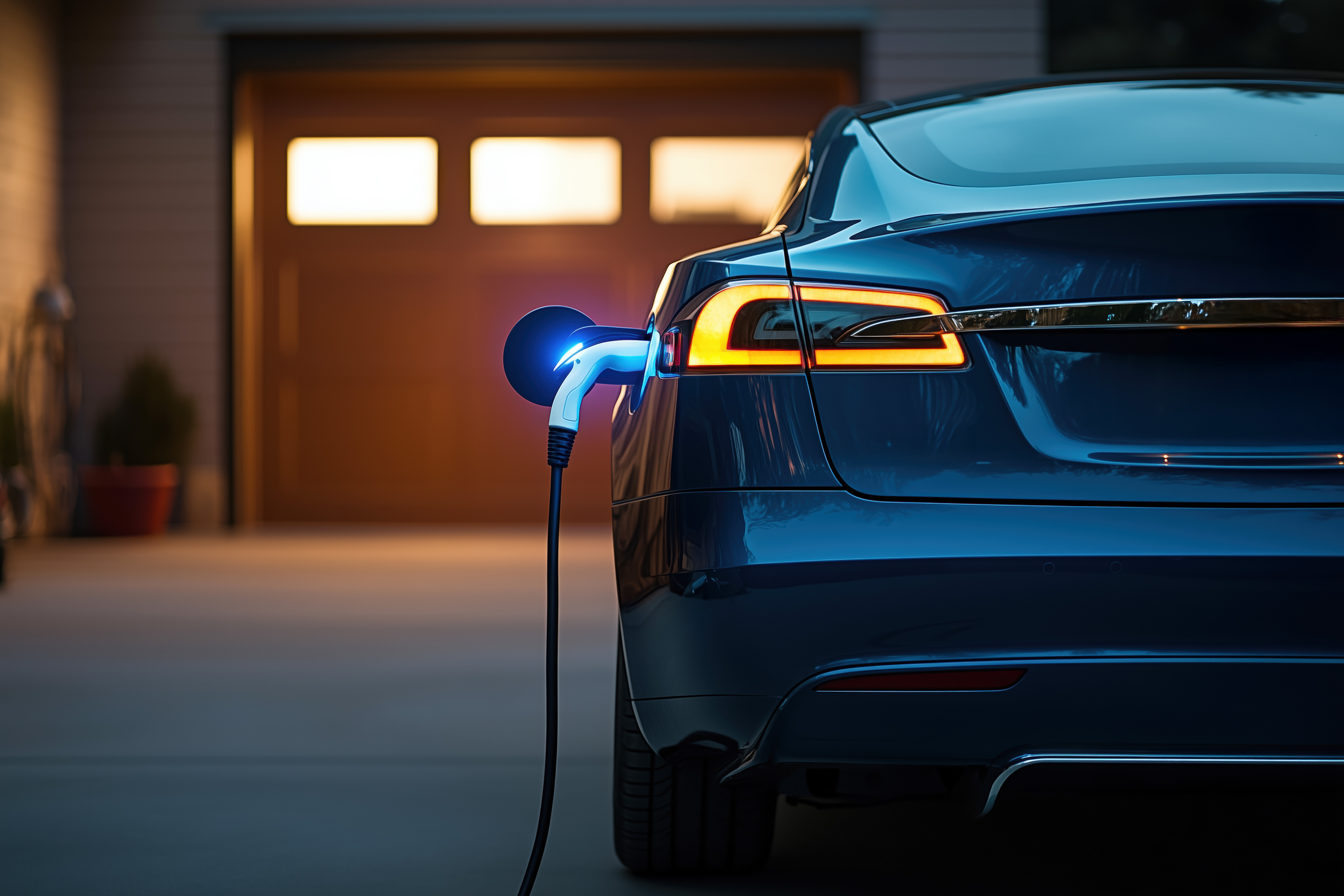Have you considered purchasing an electric car?
One of the first things consumers want to know when they begin to research electric vehicles is the cost. Sure, electricity is cheaper than gasoline, but is it worth investing in a fully electric or hybrid car? How much does it cost to charge an electric vehicle?
We’ve put together this quick guide to help you better understand the cost of charging an electric car and what factors may affect those costs, from understanding how electricity rates are charged to electric car charging stations cost.
{{CTA-EV-to-Solar}}
How much does it cost to charge an electric car?
Determining the average cost to charge an electric car requires doing some calculations. You can also use an online calculator, like this one here, to estimate electric car charging cost.
You will want to have a recent electric bill for reference. Take a look at your bill and calculate how much you pay for electricity in a month. Next, divide the number of kilowatt-hours (kWh) you used that month into the dollar total. That will give you the price you paid per kWh for electricity.
On average, an electric vehicle (EV) gets 3-4 miles per kWh, although the exact amount will vary depending on the model and the size of the car’s battery. To get a conservative estimate, divide the total miles you drive each month by three. The resulting number is the amount of kWh you would use monthly when driving an EV.
Multiply the amount of kWh you would use driving by your cost per kWh that you figured earlier. The dollar amount you end up with is a rough estimate of how much it would cost you to charge an electric vehicle.
Chances are that final number is significantly lower than the amount you spend on gas every month, making an EV a definite financial improvement over a gasoline-powered vehicle.
Let’s take a look at a quick example. Imagine that you drive about 1,200 miles each month. Dividing that number by three, we find that an electric car would use about 400 kWh. We’ll use the U.S. household average from January 2022 of 14 cents per kWh, which comes out to a total cost of $56 a month.
With most households spending an average of over $160 per month on gasoline, that makes for huge savings.
What other costs are associated with electric vehicles?
While the electric car charging price is much more cost-effective than stopping at the local gas station, especially with current gas prices, there are some upfront costs you will need to consider in addition to the cost of the car itself.
EV drivers often choose to install a charger at their home so they can easily charge their electric car while it’s parked. If you decide to install a charger on your property, the cost of installation will depend on a variety of factors, including the specific charging system you choose and permit fees in your area. A licensed professional installer can provide you with an estimate for these services.
Fortunately, the federal government and many state governments offer incentives for purchasing electric cars that can help offset the initial costs of installation and help keep the price to charge an electric car more cost-effective than gasoline.
In addition, many utility companies and energy providers, like Gexa Energy, offer special rates for charging EVs during off-peak hours, such as overnight. These time-of-use electric vehicle energy plans enable customers to enjoy additional cost benefits with their electric cars.
Some EV drivers choose to install residential solar systems to charge their vehicles and provide electricity to their home. While doing so can have a high upfront cost, a whole-house solar system easily pays for itself within the first seven years and will last for at least 25 years. Homeowners who install solar systems can also take advantage of renewable energy plans that can help them save money.
What about public charging stations?
Some public charging stations are free, while others offer subscription or pay-as-you-go models. You have likely noticed charging stations at shopping centers, malls, and even grocery stores, and they continue to pop up in new locations all over the country.
The networks that own public charging stations may have membership programs that can help minimize the electric car charging station price. Some automobile manufacturers, such as Nissan, Hyundai, and Tesla, provide free public charging at specific stations.
But EV owners can’t count on enjoying complimentary charging and should have an established place to charge their vehicles regularly, especially since the time to charge an electric car can take anywhere from 30 minutes to 12 hours.
That’s why most drivers choose to install charging stations at their home. While the upfront costs may be significant, an at-home charge point allows EV owners to cut down their charging time and can even help add value to their home for resale.
A major difference between gas and electric cars is the cost-effectiveness of EVs. Not only are these vehicles better for the environment, but they offer owners the opportunity to reduce maintenance and ownership costs. Although how long an electric vehicle battery lasts depends on the type of battery, most EV batteries have a lifespan of anywhere from 10 to 20 years, significantly reducing replacement costs for owners.
Electricity rates are more stable than gas prices, and the price of charging an electric car is often less than half the cost of filling a gasoline tank on a traditional vehicle. Drivers who invest in EVs can enjoy significant financial savings along with the satisfaction of reducing their environmental footprint.






































